
GIVE THIS RAMADAN
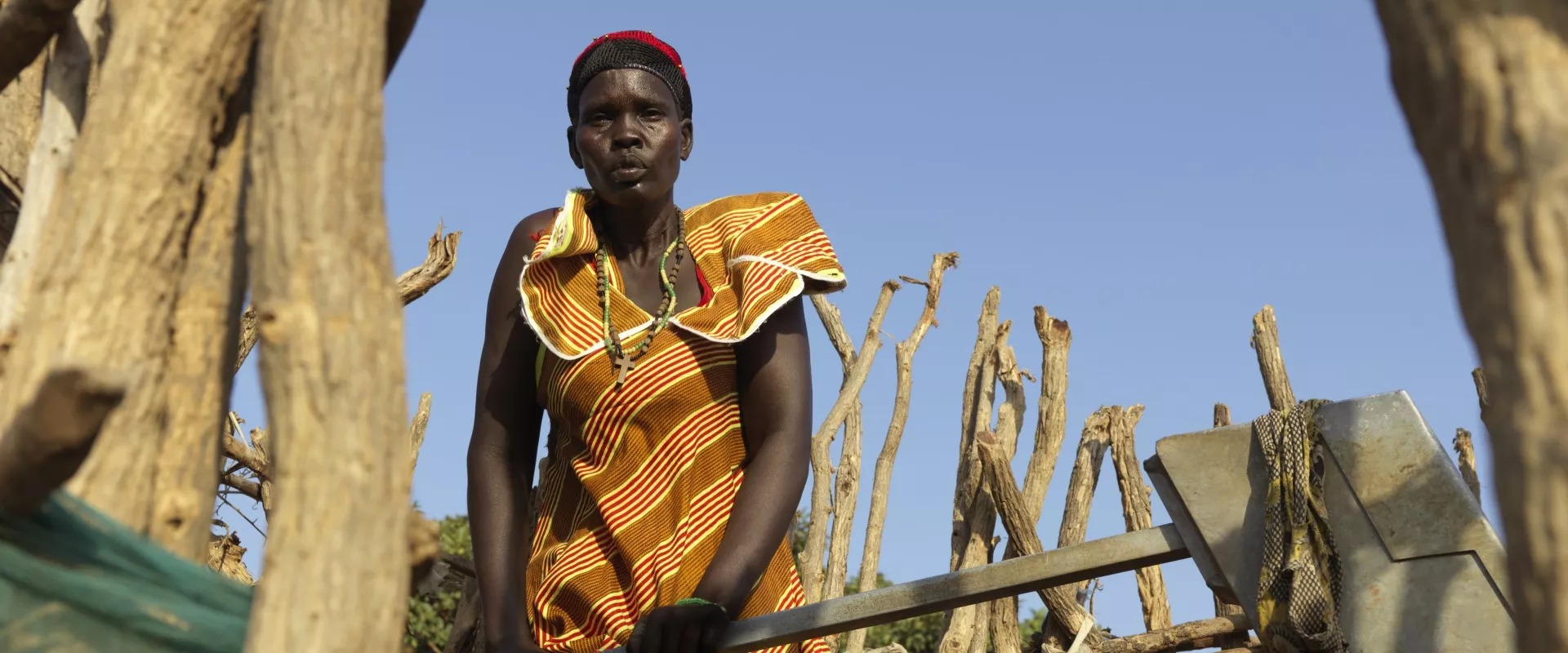
Community members in Baackuel village, South Sudan, have just elected their first water committee leader. Nyanut Kuan earned the votes of her neighbors to oversee and maintain their new clean water source, a borehole built by Action Against Hunger.
Located in Malualkon, a region known for its intense heat, Nyanut’s village is home to about 1,500 people who live far from any healthcare or other civil services. The intense yellow landscape of maize and sorghum crops stands in stark contrast to the deep red soil of the area’s few farms. These remote rural settlements depend on the mercy of the climate to water their crops.
Before the new borehole was installed, water was a daily concern for the people of Baackuel. Without any access to water, they had to make the extreme journey to the nearest village with a borehole.
“I used to be ready at 6 am to walk with my donkeys to fetch water,” recalls Nyanut. “I went every day and I travelled for seven hours on foot as my donkeys carried the water on our way back. Sometimes, my children would come and help me, but mostly I went alone.”
Each day, every drop of water Nyanut collected was used up. And each day, Nyanut made the journey to replenish their supply.
“You would go thirsty, and your children would feel sick if you didn’t travel to the borehole every day. It was a very hard life.”
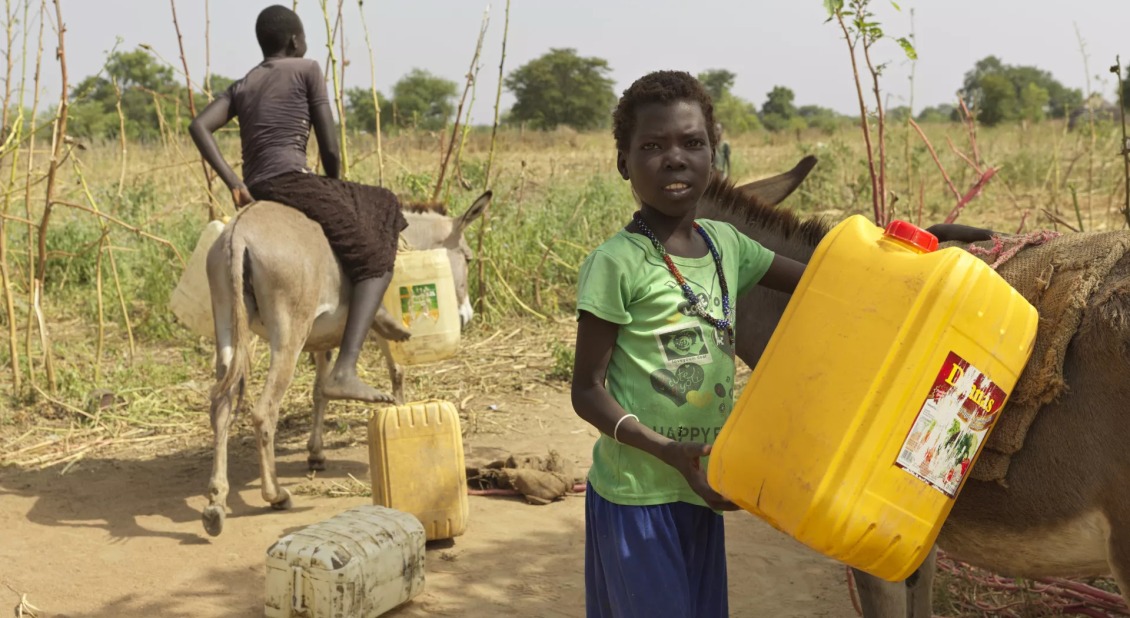
In September, Action Against Hunger drilled the first-ever borehole in the village. A few months later, the village of Baackuel has completely transformed.
To maintain their water source, a committee of five women and five men was formed. Action Against Hunger’s teams trained the members in hygiene, sanitation, and water management and, within a few months, the health of the people in Baackuel has vastly improved.
“We have seen many changes. We teach people how to build a latrine, then how to maintain hygiene in your own house, and how to teach other people about this. When we hold a meeting with the community, we don’t only talk about water management. We also tell them the importance of a latrine and hygiene,” explains Nyanut.
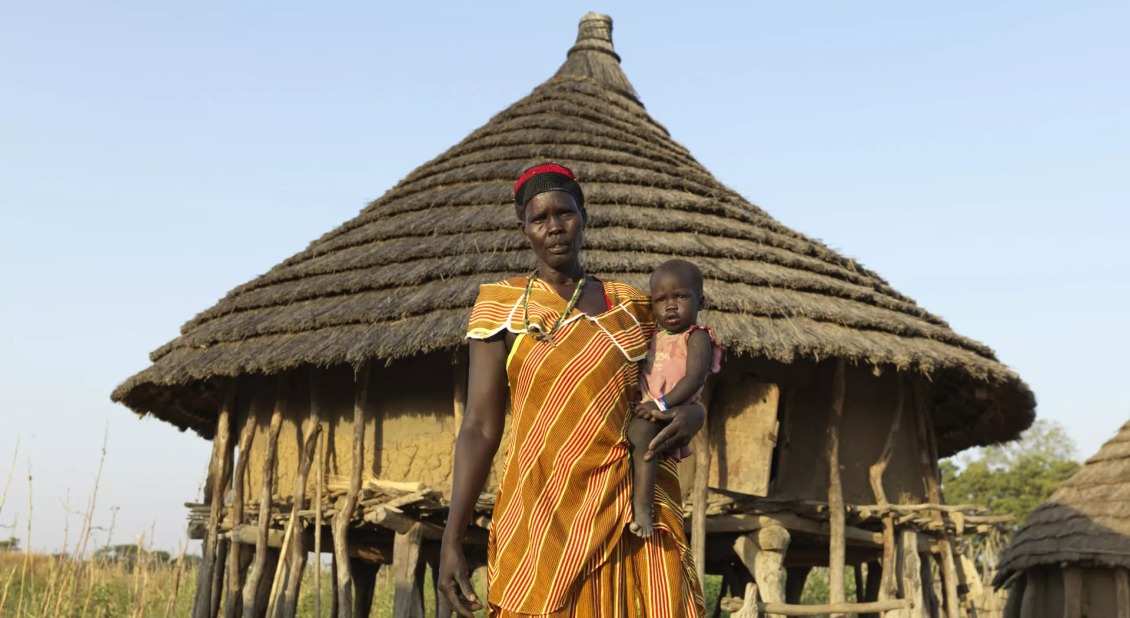
New health practices are changing the landscape of the village as more and more families follow Nyanut and the water committee’s lead. Using local materials, Action Against Hunger trained the water committee to build latrines for their homes with their own hands.
The committee teaches their community not only how to build a latrine, but also about the health and safety benefits of having one at home. In addition to preventing disease transmission, Nyanut notes that “open defecation in the bush can be dangerous because you can step on a snake or you can be in danger of wild animals like hyenas at night.”
Nyanut was the first person in the village to build a latrine, and her neighbors are motivated by her example. A sense of pride runs through the community, where some of the latrines have been decorated with local ash paint to show them off. Most of the builders are women who, following Nyanut’s lead, want to see Baackuel declared open-defecation free by Action Against Hunger and throw a big celebration like other villages in the area have.
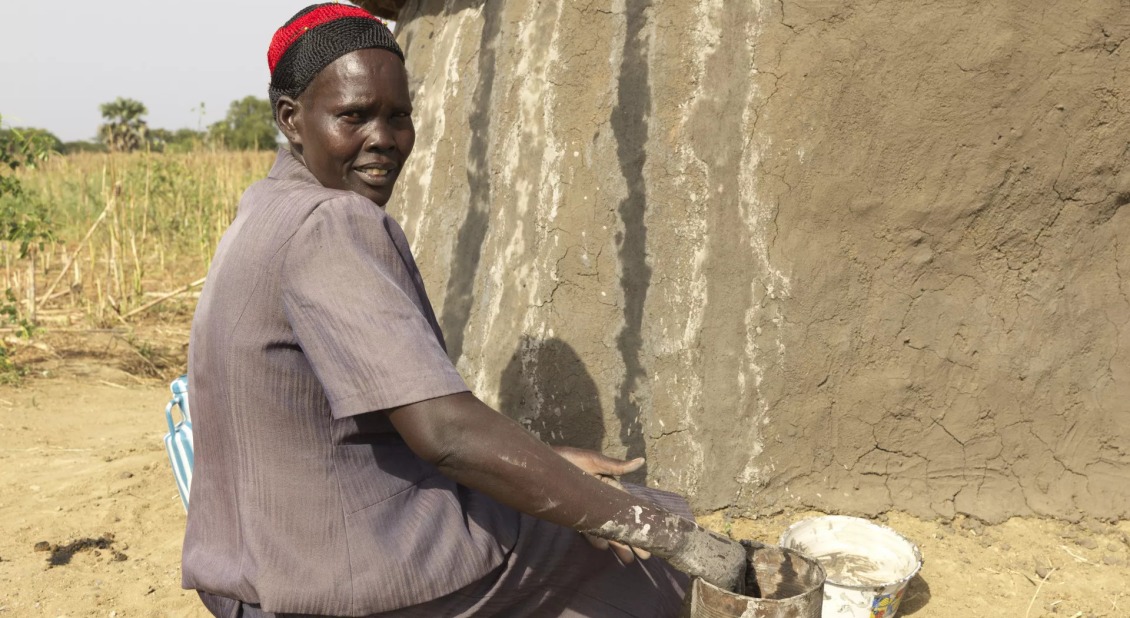
Nyanut is proud of how much the community trusts her skills. She was first selected to join the committee, then elected to the roles of treasurer and chairperson.
“I keep the money collected from the community for the maintenance of the borehole. People trust me, I’m always hardworking,” she says. “When people ask if something can be done or if something is needed in the community that requires traveling a long distance, I always offer myself. That is why they selected me to be a leader.”
Every family in the village helps to take care of the borehole, making the community feel that the future of their water is in their hands. If the borehole needs repairs, Nyanut has the budget ready to buy spare parts or hire a mechanic.
“My work is to mobilize people. When we need a meeting – like when the community has to be informed that there is a need to contribute money to repair the borehole when it breaks down – I’m the one who calls the meeting,” she says with pride.
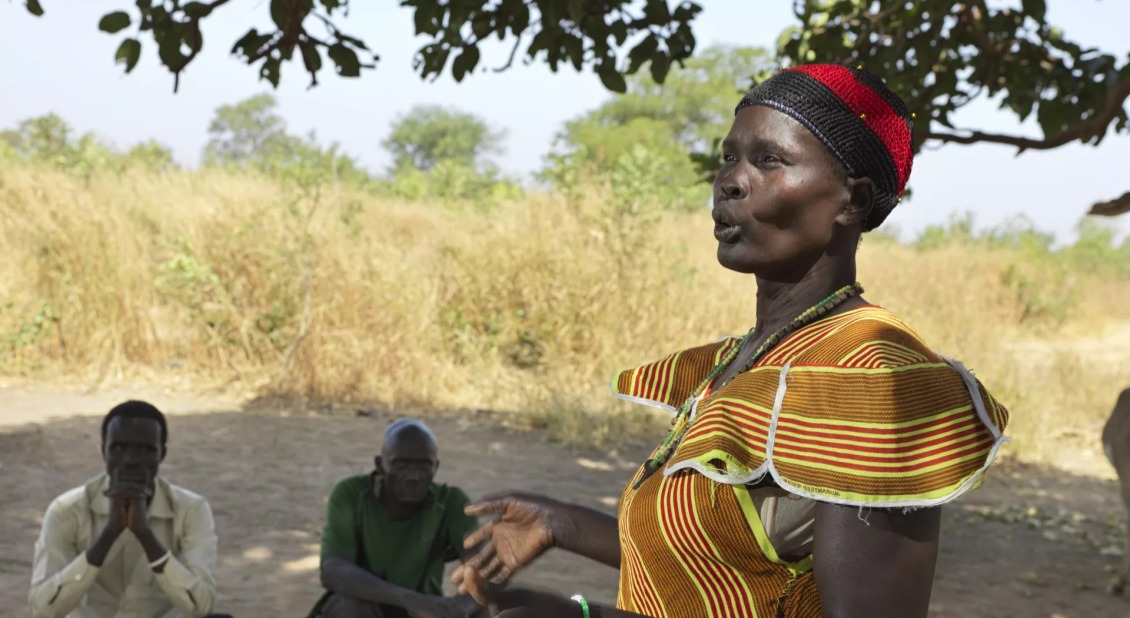
Being in charge of the money that guarantees the community’s access to water is one of the biggest responsibilities a person can have in the village. Trust is key. Yet, even with the contributions gathered for the repair, sometimes there is no mechanic available or willing to travel to the village.
“On those days, the community goes thirsty, but if there was training available for learning how to repair a borehole, I would be very happy to learn,” says Nyanut. “I would be able to repair the borehole with my own hands and we could save that money for the community.”
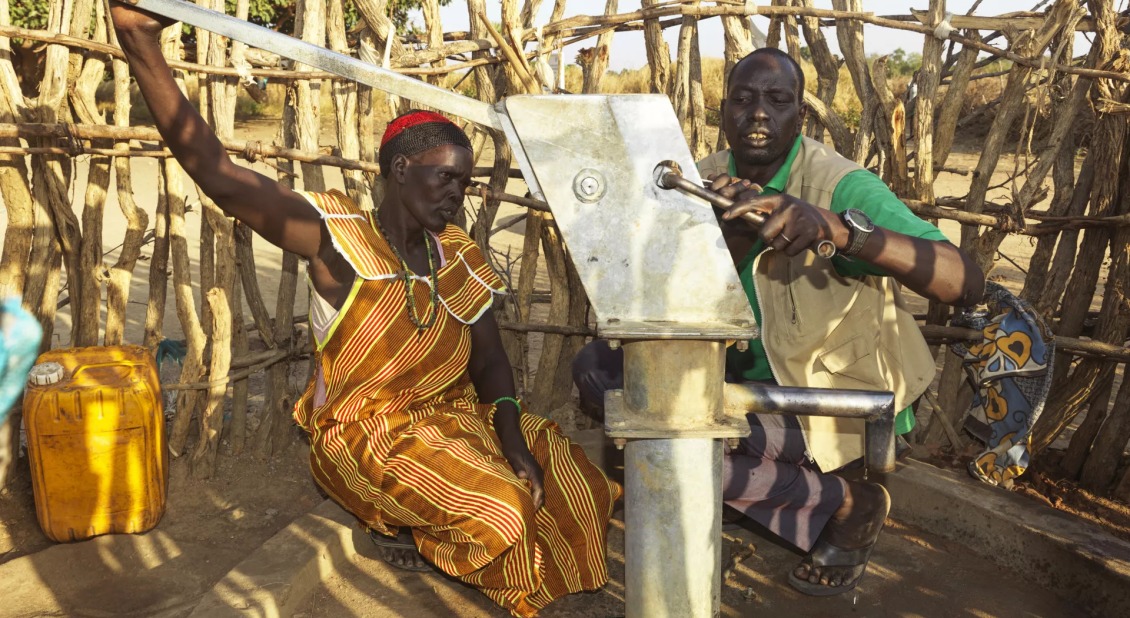
The role of the committee chair would typically have been held by a man, but Nyanut is so committed to her community, she was motivated to change tradition. She is inspiring the next generation to think differently about gender roles, too: some girls in the village say that they would like to be the committee chairperson some day – a future Nyanut hopes to see.
“People see me with a lot of respect, when I call for a meeting they come on time and listen,” says Nyanut. “The people are happy with my work and I hope that when the girls grow up and marry they will hold this position on the committee.”
Nyanut and other women of Baackuel are changing their communities in more unseen ways – their care for their children and commitment to improving health has extended to their entire community.
Through her work, Nyanut is transforming the way people live in this village, but she still has bigger dreams for her community.
“If the entire community listens to the hygiene messages we give them as water committee, we are going to change in the years to come. We will not remain like this. Now we are building our latrines using local materials and, if we continue like this, we will change even more. This is my dream for the community.”
Join our community of supporters passionate about ending world hunger.